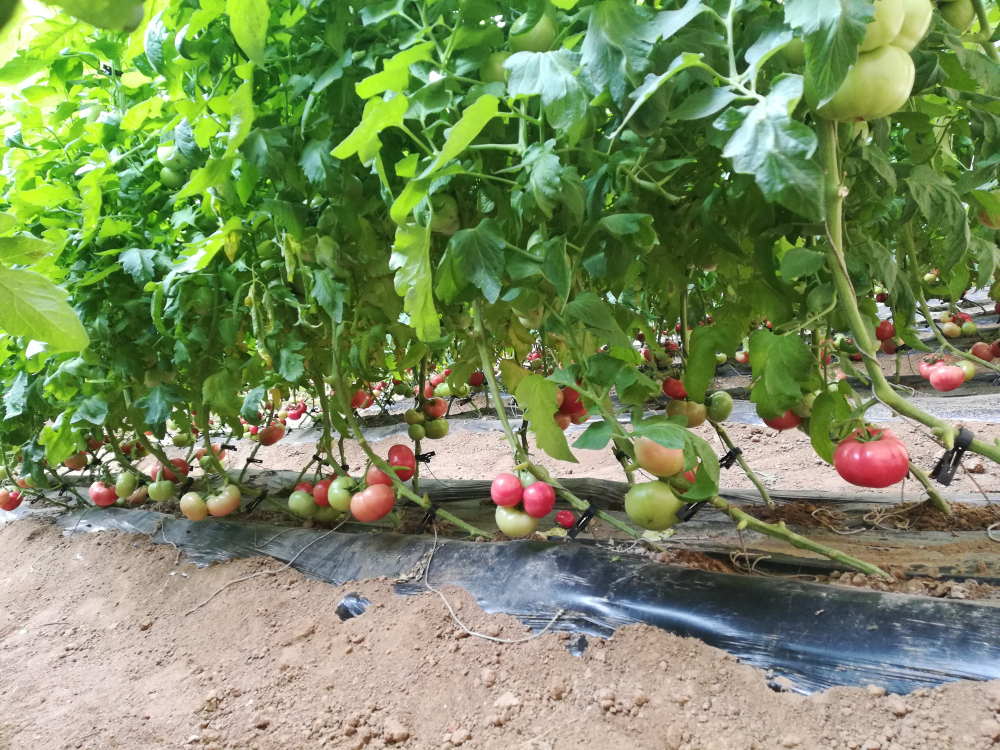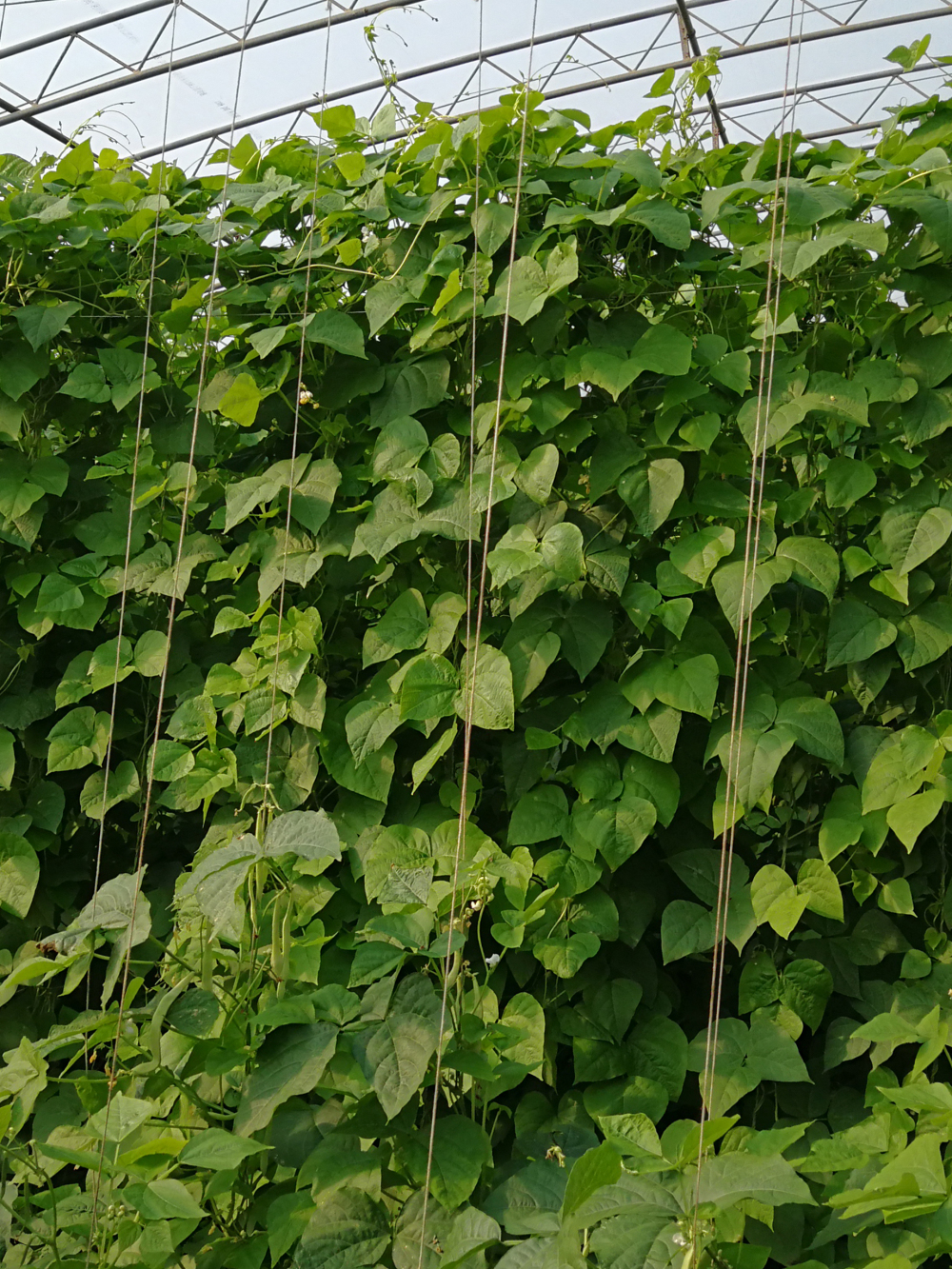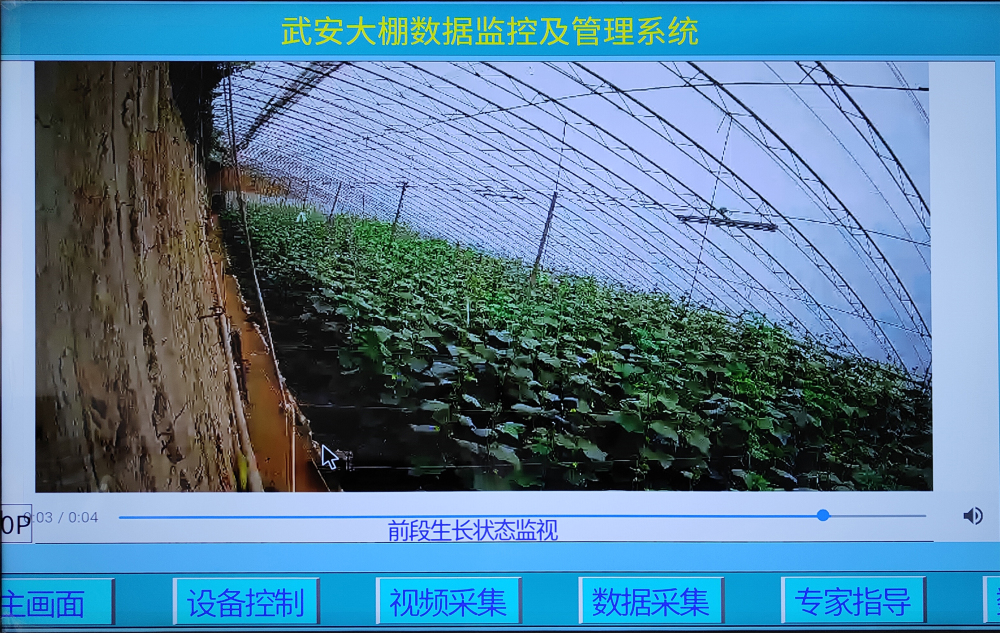In order to improve the production technology level of facility vegetables in southern of Hebei, the Institute of Cash Crops has established a demonstration base for improving the quality and efficiency of facility vegetables’ production in Wu'an City. Combined with the main crops planted in the base, such as early spring beans, autumn and winter tomatoes, and winter zucchini, in response to problems such as non-standard planting technology, low popularization rate of green production technology, and insufficient labor force, scientists have demonstrated and promoted green production technologies such as Internet technology (obtained software copyright), technical regulations for the cultivation mode of spring beans and autumn tomatoes in solar greenhouses, technology for reducing fertilizer application, pest and disease green control technology, and technical regulations for the entire zucchini industry chain.

One is that growers can monitor and manage the growth environment of crops uniformly through computers and mobile phones, according to the prompts in the system, carry out crop disease prevention and control operations, and simplify the operation links such as ventilation, rolling shutters, and watering in vegetable greenhouses. The second is to provide an optimized fertilization plan based on the relationship between tomato yield and fertilizer application, this can solve the problem of excessive fertilizer application in vegetable production. The third is to adopt advanced plant protection technologies such as the application of flour mills to shorten the spraying time, reduce the dosage of pesticides, and save labor. The fourth is the application of cultivation technology regulations for vegetables, which improves product quality and produces green vegetables.

New varieties and technologies, innovate planting models are demonstrated and promoted in the base. From 2022 to 2024, corresponding technical services were provided during the critical seasons of vegetable growth. A total of 606 people were provided and 6 technical backbones were trained to improve the planting level. The technical demonstration effect is significant. Compared with traditional cultivation methods, the use of advanced technology integration mode resulted in an average yield increase of 8.6% for tomatoes, a 10% increase in soluble solids, a 20.2% increase in spring bean yield, a 14.3% increase in zucchini yield, a 15.2% increase in cucumber yield, and an average annual yield of 11000 kg per mu of facility vegetables. This achieved a water saving of 35.5%, fertilizer saving of 32.1%, and pesticide saving of 28.6%, with an increase in efficiency of over 1550 RMB per mu, and a radiation promotion area of 2000 mu.

(Source from www.hebnky.com)